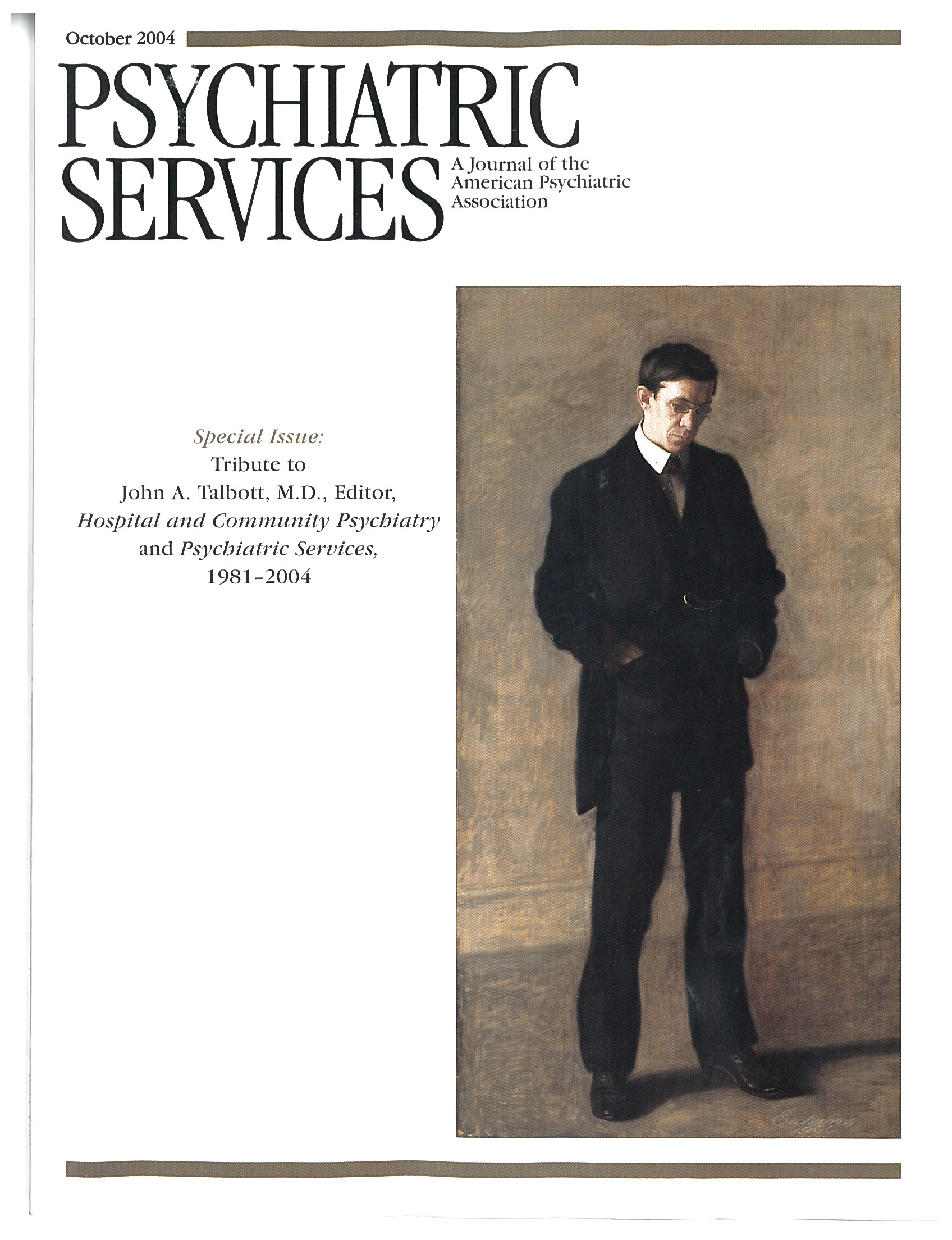To the Editor: John Talbott first impressed me when, as president of the American Psychiatric Association, he made a grand entrance into a rodeo in cowboy garb and on horseback during the 1985 APA annual meeting in Dallas. He impressed me more when he focused his presidency on an important cause: advocating for the disenfranchised people with chronic mental illness. He subsequently continued to impress in championing this cause by building a strong department of psychiatry at the University of Maryland that emphasized public psychiatry and by editing Hospital and Community Psychiatry and Psychiatric Services.
John is a generous mentor and warm man. When I was an APA Burroughs Wellcome fellow during psychiatric residency, John, an APA luminary, took me under his wing. He made excellent recommendations about components to join. Ultimately I had the great fortune to land on one of his committees, a "blue skies" component to prognosticate APA's future. This assignment was a treat in large part because of John's own vision about where we might be heading. John has been—and I hope will continue to be—a pillar of the APA and a familiar presence at its annual meetings, dressed usually not in Western attire but in his familiar bow tie.
I've had similarly good feelings about John's tenure at Psychiatric Services. As a peer reviewer and editorial consultant since the late 1980s, I've enjoyed a pleasurable and educational collaboration. John is pragmatic, with clear judgment about what is important and worth publishing. He has done a tremendous job with Psychiatric Services and has left a vibrant and important journal for his successor, Howard Goldman.
Dr. Markowitz is associate professor of psychiatry at Cornell University Medical College in New York City.



